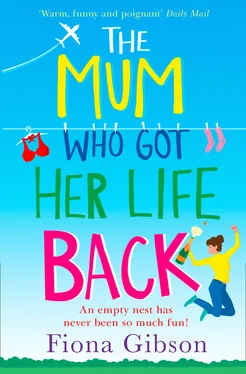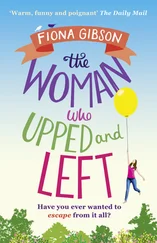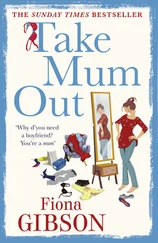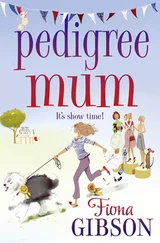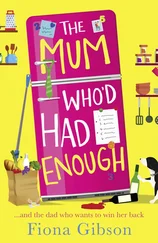‘No, I do not .’
‘It wouldn’t be very festive,’ I add, at which, thankfully, his eyes glimmer with amusement as he finally realises I’m having him on.
‘I don’t want to ever look at people’s poos,’ he adds, ‘unless they’re Pancake’s. And I don’t like it, y’know – I just do it, with the little plastic bags, because you can’t just leave it lying there, can you? Not if you’re trying to be a good citizen.’
‘No, you can’t,’ I say, glancing at the clock now. It’s almost seven p.m., and Iain and I have spent an extra two hours past closing time, sorting donations. I’m paid an okay-ish salary to manage this place, and for the most part I enjoy it. But now I’m seized by an urge to head home, maybe go for a run or meet up with friends, anything rather than be trapped in our dingy back room.
I can tell Iain’s still feeling rattled as he stuffs his books into a carrier bag. In regular shops, where everyone’s paid, you can pretty much expect your team to come in and do their job, and go home; it’s a straightforward exchange of money for labour. A charity shop works differently. While some of our helpers – mainly the elderly ladies – simply enjoy the company and want to make a difference, others are more emotionally entwined with our little emporium.
I started out here as a volunteer myself. I needed something to keep me busy after the Glasgow-based book publisher’s I worked for went bust. It was gutting, really, when it happened. Gander Books had been a tight-knit operation with just the MD, two editors, a couple of admins and myself. After a media course at college, followed by a smattering of casual jobs, I’d been taken on at twenty-three as an admin assistant. Keen and hard-working, I seemed to fit in well, and pretty soon I was promoted until I was taking care of Gander’s publicity, marketing and events. It was a brilliant job, and as book publishing jobs are few and far between in Glasgow, I was happy to stay put.
Gander won literary prizes and Independent Publisher of the Year, and all seemed to be going swimmingly for many years until authors started to complain of advances and royalties being delayed, then not paid at all. The permanent staff were put on ‘emergency measures’ (i.e. drastically cut pay) and finally, after months of uncertainty, the whole place sunk.
We were all bereft. I’d worked there for fifteen years, and the place had felt like a second family. There was no payout for staff, and by then Elaine and I had a four-year-old daughter so I couldn’t hang around, perusing job ads until the ‘ideal’ position came up. For a few years I worked for an events company, building up a second strand in freelance proofreading on the side. When redundancy happened again I decided, to hell with it; the next job I took would really matter to me and what the hell if I took a big pay cut. I’d kept in touch with the manager of the charity shop, and when she decided to move on it felt kind of right to apply.
Iain turns up his jacket collar against the sharp wind as we step outside. ‘It’s great that you want to learn to cook,’ I tell him. ‘But how about you forget that cranky cookbook, and try something simple that doesn’t need a recipe?’
He folds his arms over his substantial stomach as I lock up the shop. ‘Like … salad ?’
‘No, not salad,’ I say quickly. ‘How about soup? Something simple like that?’
‘But I just buy my soup …’
‘Okay, but if you’re going do some cooking over the holidays, it’s a good place to start. It’s the easiest thing. Even Lori can make it.’
‘What d’you do, then?’ he asks as we fall into step.
‘Fry up some leeks or onions, then chuck in any other veg, and water. Throw in a stock cube …’
‘Is that all soup is?’
‘Yep, that’s it.’ We fall into companionable silence as we make our way towards the car park. On the days I drive in, Iain tends to accompany me to my car, as if I might be incapable of finding it without his help. ‘Well, enjoy your Christmas,’ I add as we reach it. ‘And good luck with the cooking—’
‘Aw, shit!’ he says as his carrier bag splits, and his books tumble to the ground. As we don’t have another bag for him to carry them home in, he agrees to leave them in my car. Apart from the dog-eared diet cookbook, which he insists on taking home – ‘in case I need it.’ And I watch him, clutching it to his chest as he marches off, leaving waves of indignation in his wake.
The next day I take Lori for our Christmas Eve lunch. As it’s her mum’s turn to spend the big day with her, this is our festive treat together. My daughter chose the sushi restaurant – because naturally, what you really want in Glasgow in December is chilled rice and raw fish, shunting towards you on a conveyor belt. ‘Shivery food,’ her mother calls it, but in fact, I’m quite happy to be here. Although Lori usually spends a couple of weeknights at mine – plus every second weekend – it still feels kind of special as we perch on our stools and tuck in.
‘So, did you go to the school dance?’ I ask as she swipes her third plate from the belt.
She shakes her head. ‘Decided not to.’
‘Oh, why was that?’
Lori twirls a noodle around her chopstick. ‘You know what they’re like.’
I can’t help smiling. ‘Not really, Lor. I mean, our school dances had Scottish music, and this awful situation of the boys all lined up on one side of the hall, and the girls on the other, and you were expected to walk over and pick someone …’
‘You mean the boys always picked? How is that fair?’
‘It’s not fair. It’s just the way it was …’
‘The girls never picked?’
I laugh and shake my head. ‘I wasn’t responsible for the system, Lor. That was a long time ago …’ I break off, realising she’s dodging my question. ‘Anyway, why didn’t you go?’
She shrugs. ‘I wasn’t allowed.’
‘By who? By Mum?’ I frown at her. It’s unlike Elaine to lay down the law about anything. She let Lori have her ears pierced at ten years old, which I wasn’t delighted about. But what could I have done when I only found out after the event?
‘Mr Fletcher said I couldn’t go,’ Lori says airily, referring to her form teacher. She flicks back her fine light brown hair and studies the conveyor belt. ‘I wish there were those little pancake things. You know the ones with the duck?’
‘Lor, why weren’t you allowed to go?’ I prompt her.
‘Just stupid stuff …’
‘Okay, but what exactly? It seems a bit severe—’
‘I didn’t want to go anyway,’ she says firmly, wrinkling her lightly freckled upturned nose.
She snatches a dish of tuna sushi and spears it with her chopsticks. At fourteen, she wears her long hair pulled back in a ponytail, virtually lives in jeans, T-shirts and baggy sweaters, and shows zero interest in make-up. All of this makes her look, if not younger than she really is, like a girl of her actual age. It’s a relief, frankly. Her best friend Shannon has spray tans and wears terrifyingly thick false eyelashes, like fluttering canopies. She is well into boyfriend territory – livid love bites have been spotted on her neck – whereas, thankfully, Lori still seems to regard boys as mates.
‘It’s not really anything,’ she adds firmly.
‘C’mon, just tell me. I promise not to go on at you, okay?’
She sniffs. ‘Just behaviour and things.’
‘Right. So what kind of—’
‘Dad,’ she says impatiently, ‘just being late for lessons, stuff like that.’ She sighs, and I decide to let it go for now as we tuck into our lunch. ‘So, where are we off to next?’
Читать дальше
